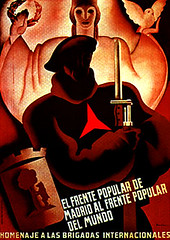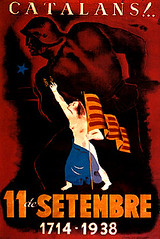Situation Normal
-- Dick Cheney's "barely legible" handwritten comment on a report "detailing purported evidence of links between Al Qaeda and Saddam Hussein" issued by Douglas Feith's covert "Iraqi intelligence cell" (quoted at the end of Murray Waas's blockbuster National Journal article)
"Iran's supreme leader urged the Iraqi president on Tuesday to seek a timetable for the withdrawal of US troops from Iraq, saying the American presence harms the country. Ayatollah Ali Khamenei met with Iraqi President Jalal Talabani, who is paying a three-day visit to Iran, a country the United States accuses of meddling in Iraq but that is closely allied to Iraq's new Shiite and Kurd-dominated leadership."
--Associated Press, "Khameni to Talabani: Seek date for US withdrawal," Nov 23
"In speeches over the last week, [Murtha] has repeatedly referred to a constituent, Pfc. Salvatore Ross Jr., a combat engineer from Dunbar, Pa., who was badly wounded while landmines he was clearing near Baghdad went off. The explosion blinded him in both eyes and tore off his leg below the knee, Private Ross said in an interview. He spent more than a month in a coma at Walter Reed and later underwent more than a dozen surgeries."
--New York Times, "Lawmaker Returns Home, a Hawk Turned War Foe," Nov 23

